In today’s job market, you need to stand out from the crowd to secure an interview for that perfect job. A standout resume is your first step toward landing your dream job, and a systems analyst resume can help you achieve that objective. Working as a systems analyst requires extensive technical knowledge and proficiency in software like SQL, Visual Basic, COBOL, and others. When writing your resume as a systems analyst, you’ll want to focus on your relevant skills and experience. This blog post will cover some essential tips for creating an effective systems analyst resume. You’ll learn how to tailor your resume based on the type of job you are applying for, highlight all of your strengths, and much more! Keep reading to begin exploring how to create an impressive resume as a systems analyst.
Systems Analyst Resume Example

Download This Systems Analyst Resume as PDF
Data Analyst Resume Example

Download This Data Analyst Resume as PDF
Business Analyst Resume Example
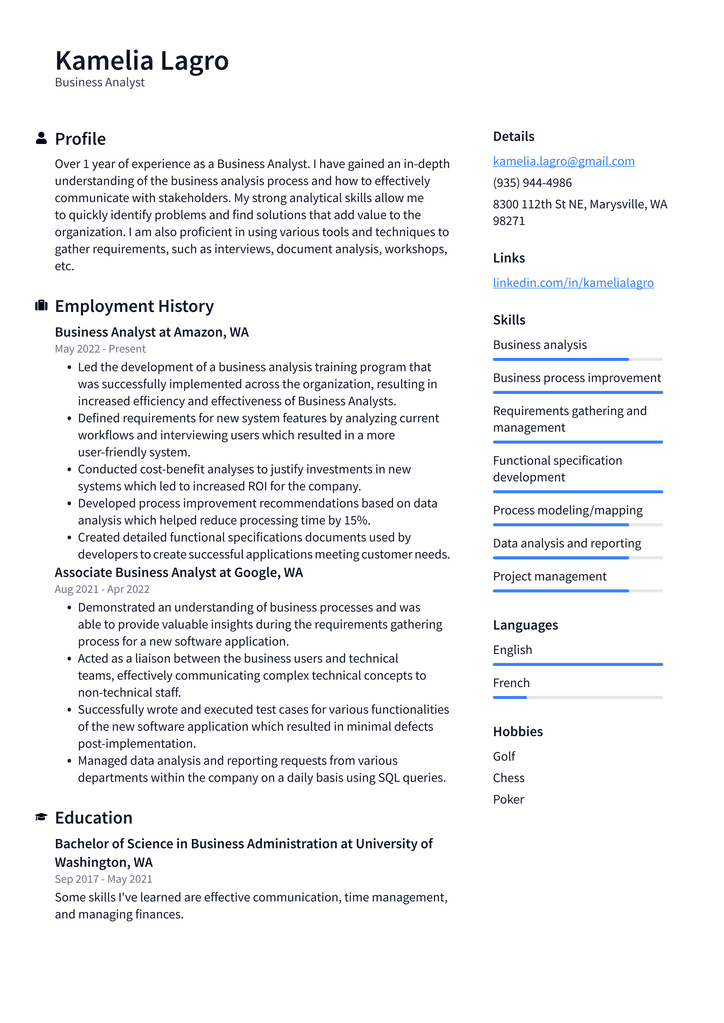
Download This Business Analyst Resume as PDF
Network Analyst Resume Example
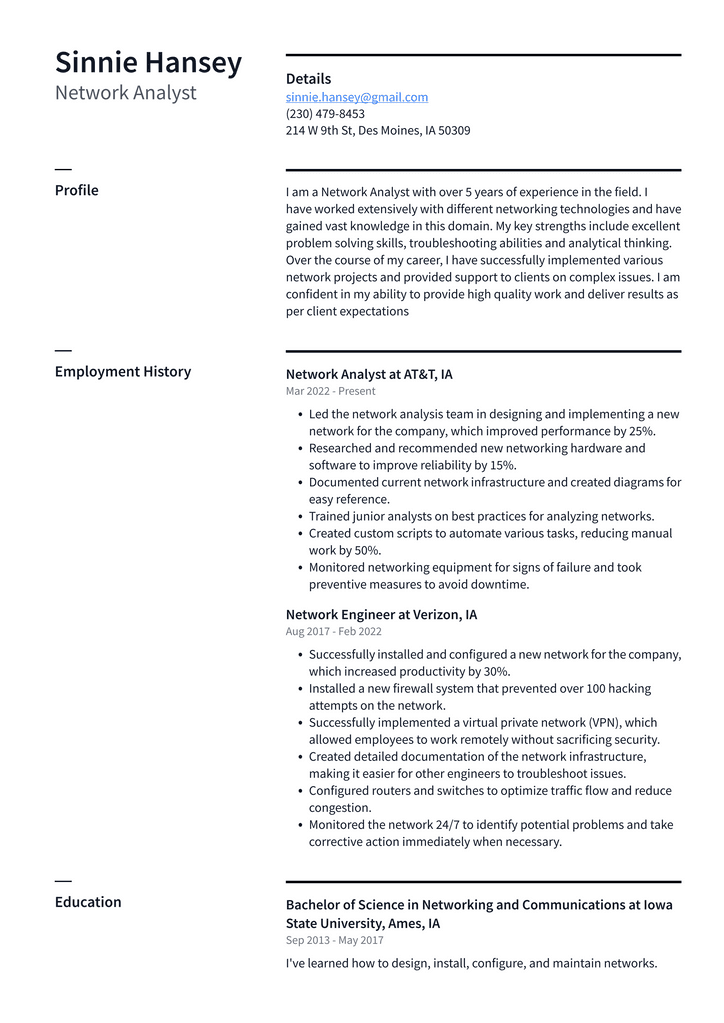
Download This Network Analyst Resume as PDF
Systems Engineer Resume Example
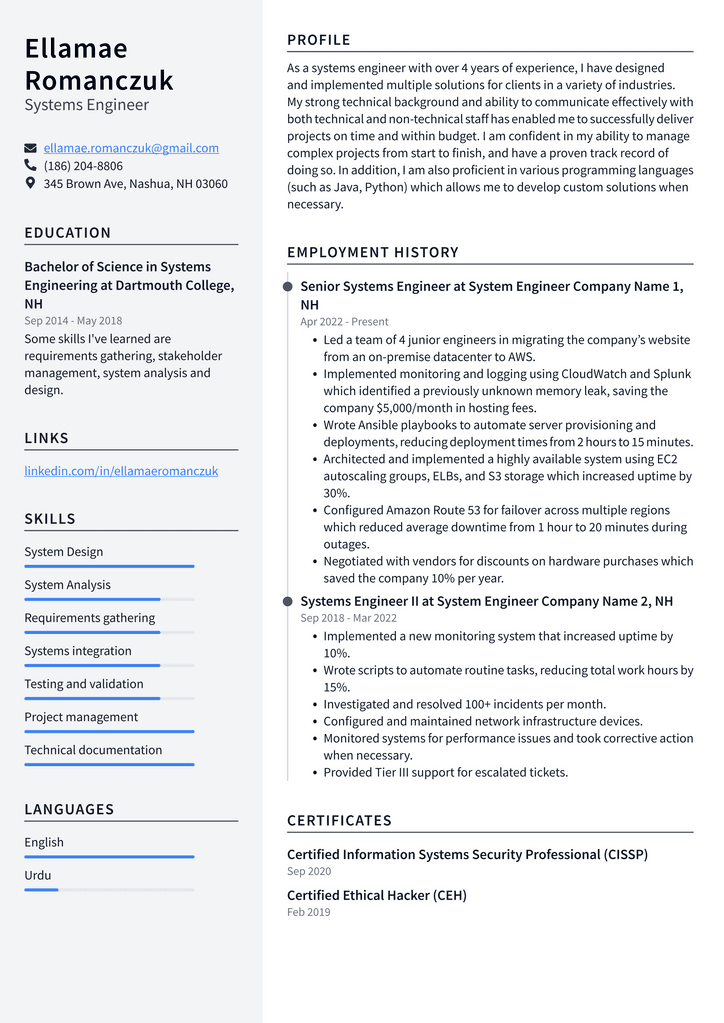
Download This Systems Engineer Resume as PDF
Support Analyst Resume Example
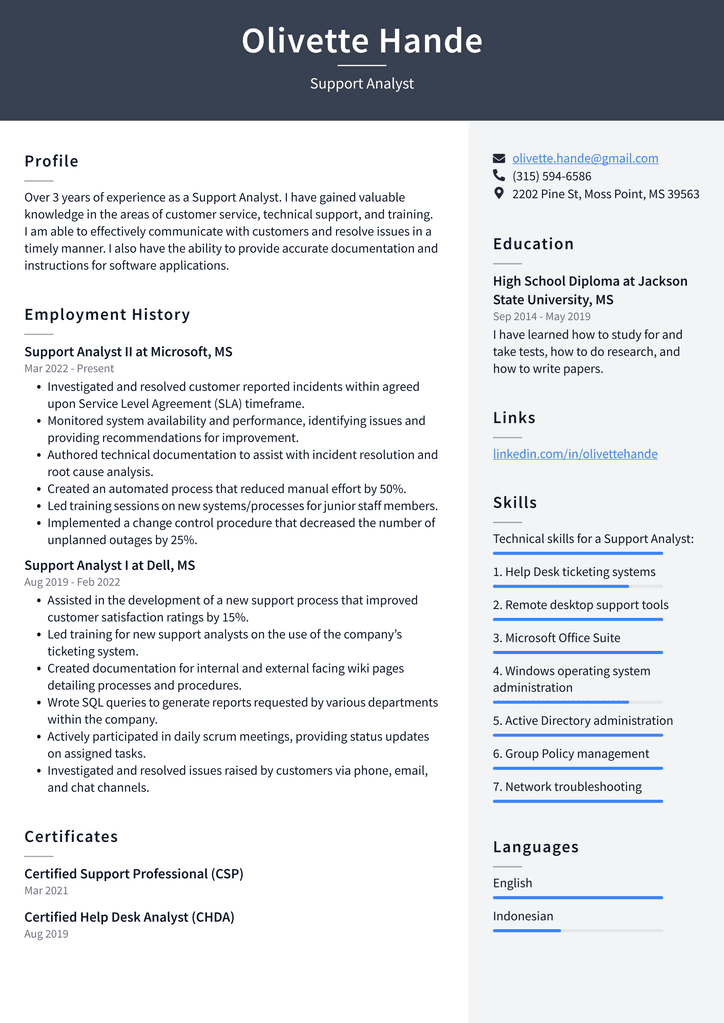
Download This Support Analyst Resume as PDF
Security Analyst Resume Example
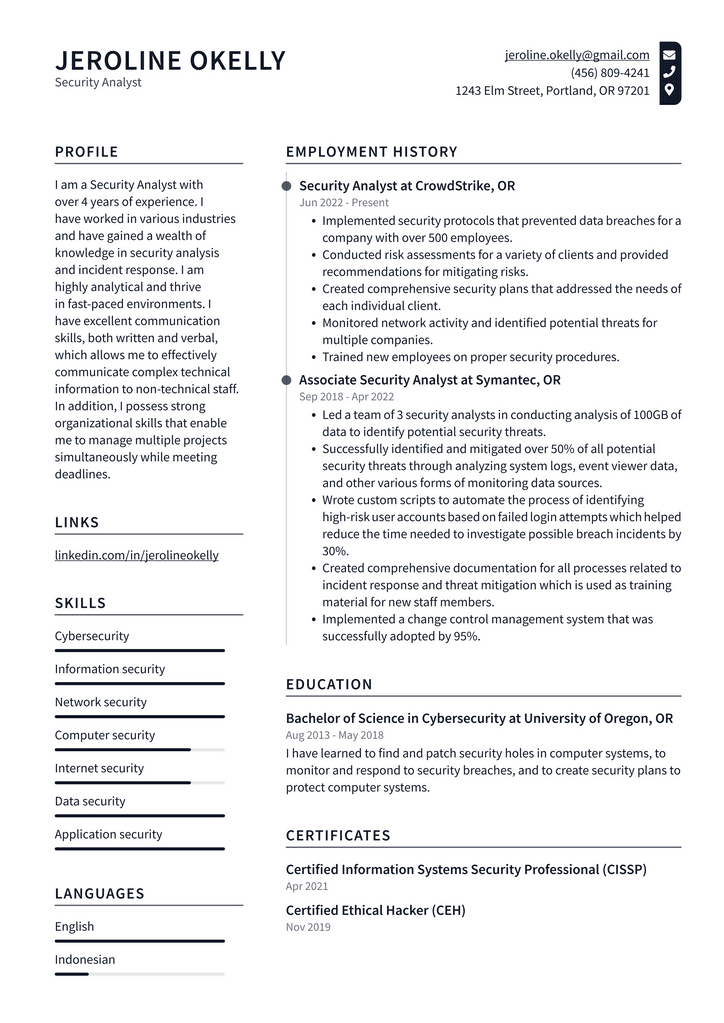
Download This Security Analyst Resume as PDF
What Is a Systems Analyst Resume?
A systems analyst resume, like many other resume types, is a document that highlights your skills and work experience to help you secure a job interview. As such, a systems analyst’s resume focuses on your past job responsibilities and achievements to demonstrate how your skills are relevant to the job that you are seeking. A systems analyst resume is one type of IT resume. Other types include software engineers, project managers, database administrators, and more. You will want to emphasize your technical skills and knowledge when writing a systems analyst resume. A systems analyst’s overview differs from a network engineer’s in that a systems analyst has an in-depth understanding of application systems and their business processes. On the other hand, a network engineer has in-depth computer network knowledge.
Use a format that highlights your skills and experience
A systems analyst resume format is not one-size-fits-all. You’ll want to select a design that highlights your skills and experience. For example, if you’ve worked in a specific industry, you’ll want to choose a format that accentuates your achievements in that industry. If you’ve worked for multiple companies, you’ll want to select a design that emphasizes the type of job you performed at each company. While there are no hard and fast rules for choosing the best format, there are some standard formats that systems analysts commonly use. The chronological resume is the most common format when applying for a systems analyst position. It highlights your work history by listing your work experience in reverse chronological order. The functional resume is commonly used by individuals who have spent significant time out of the workforce. It highlights your skills and qualifications without focusing on your work history. Finally, the combination resume is a hybrid of the functional and chronological resume formats. It highlights your skills and work history.
Use the right keywords to optimize your resume
Using the right keywords is essential to getting your resume noticed by employers. However, it’s also easy to go overboard and use keywords that don’t apply to you. When writing your systems analyst resume, you’ll want to select keywords relevant to the job you are applying for. You can find these keywords in the job description and through a Google search of the company. While you want to include the keywords most relevant to the job you are applying for, you don’t want to overuse them. Using too many keywords can make your resume look spammy and unappealing to employers.
Don’t let your resume become a cliché
Most systems analyst resumes are written to appeal to a broad audience. As a result, you may notice that many systems analyst resumes are very similar. In addition, most systems analyst resumes will include some combination of the following: While these components can make your resume more appealing to employers, they can also make your resume cliché. Avoiding clichés is essential to standing out from your competition.
Highlight your accomplishments
Most systems analyst resumes are built around accomplishments. That’s because job responsibilities frequently change, while the core skills that systems analysts use to achieve those responsibilities don’t change much. To highlight you’ll want to include quantifiable results to your accomplishments in your systems analyst resume, you’ll need enough to show that you completed your job duties. It would help if you indicated that you achieved exceptional results.
Include references if applicable
If you’ve had an exceptionally long career, you may be tempted to leave references off your resume. However, keeping them off your resume can hurt you. Your references may be able to talk about the excellent work you’ve done in the past. They may also be able to help you secure the job that you desire. If you’ve recently graduated from school, your references will be professors and employers. If you’ve been working long, references may be coworkers and clients.
Make sure your resume is error-free.
While writing your systems analyst resume, you should take care to avoid grammatical and punctuation mistakes, as well as factual errors. If you’re referencing a project or company, ensure you’ve spelled it correctly. If you’ve ever had a job, you should be able to recall the name of the company’s name post. If you can’t, you may want to reconsider including that position in your systems analyst resume. When writing your systems analyst resume, you must avoid factual errors. Employers don’t want to hire a systems analyst who doesn’t know what they do.
Conclusion
Writing a sound systems analyst resume is no easy task. It takes perseverance and a ton of revision. You may write several versions before you find one that is truly exceptional. However, if you follow these tips and write an outstanding systems analyst resume, you will likely get interview invitations from employers across the country. Your dream job could be just one resume submission away!